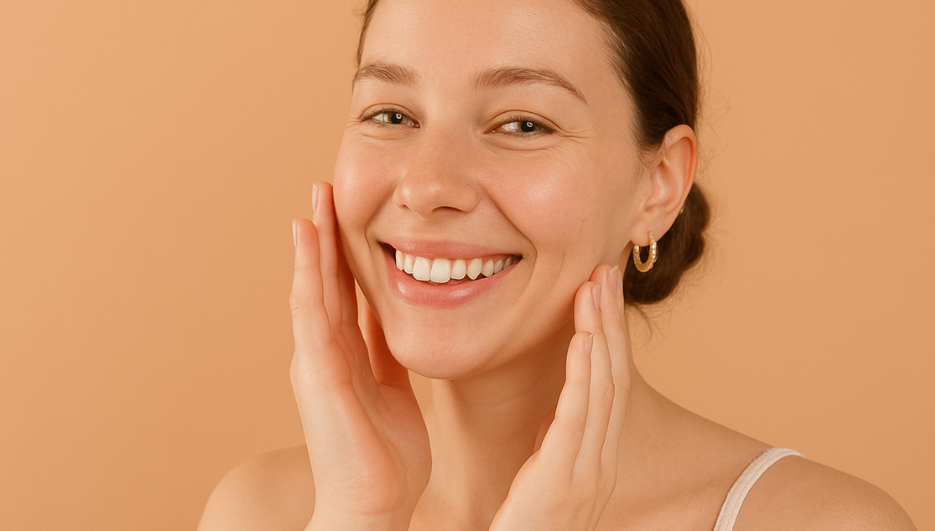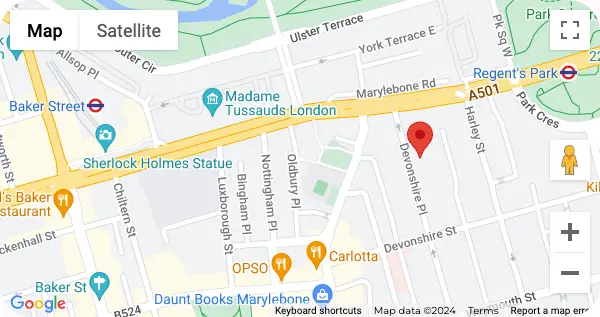Microneedling Rosacea: Fast-Track Your Skin Renewal
Microneedling is a minimally invasive treatment that aids in the minimisation of redness, smoothing the texture, and reconstructing the skin barrier when working with rosacea-prone skin. Carried out using the skills of professionals at the Harley Street Skin Clinic, our microneedling procedures relax and perfect the most delicate of complexions. Discover a different way to clear skin and self-confidence.
What is Rosacea?
Rosacea is a skin disease in which redness or permanent flushing occurs in your face. It can also lead to the enlargement of blood vessels and the presence of small bumps with pus. Certain symptoms can appear on a weekly or monthly basis, and then they can disappear after.
Some people find rosacea confusing; they tend to think it is acne, dermatitis, or other skin issues.
Rosacea has no treatment yet. However, with proper medication, mild treatment of the skin, and avoidance of stimuli that lead to exacerbation, you can possibly manage it.
Common triggers are:
- Sun or wind
- Hot beverages
- Severe hot or cold temperatures
- Alcohol
- Spicy foods
- Emotional stress
The risk factors are:
- People aged between 30 to 50
- Individuals with fair skin, light hair, and blue eyes.
- People who smoke or have previously smoked
- Other members of the family have rosacea
Common Symptoms of Rosacea
Rosacea manifests itself in different ways and tends to fluctuate between flare-ups and remission. Major symptoms are:
- Persistent facial redness
- Visible capillaries (telangiectasia)
- Stinging or burning sensation
- Acne-like papules and pustules
- Skin sensitivity
- Coursened skin (in severe cases)
- Eye irritation or ocular rosacea
This disease can neither be eradicated nor reduced. However, treatment options exist to enhance the condition and advanced skin health considerably, with microneedling as one of the most effective interventions.
What is Microneedling?
Induction collagen therapy or microneedling is a minimally invasive treatment procedure conducted with the help of a device that has ultra-fine needles. It is those needles that cause tiny injuries on the surface of your skin to stimulate the body to go into the natural healing process.
The process also leads to the increased creation of collagen and elastin, which are some of the structural proteins that we require to ensure that we have smooth and firm skin. It is also able to offer a skin barrier. Microneedling can correct fine wrinkles and textural skin, and make a complexion look fresher in the long term.
How Does Microneedling Work?
Microneedling creates controlled, tiny injuries that:
- Stimulate collagen production and activate fibroblast activity
- Encourage regeneration of the capillaries and alleviate the ruptured vessels
- Strengthen the epidermal barrier
- Improves skincare products absorption
When microneedling is used under clinical supervision with medical-grade equipment, these benefits can be very potent for rosacea.
Microneedling and Rosacea
Is Microneedling Good for Rosacea?
Microneedling can be a safe and effective treatment for rosacea, especially when conducted in a reputable clinic and performed by an experienced and certified doctor. It is highly recommended for those individuals who are suffering from:
- Persistent redness
- Rough or bumpy skin texture
- Dysfunction of the skin barrier
- Post-inflammatory hyperpigmentation
Using mild and regulated procedures designed for sensitive skin is very crucial. Our rosacea treatment at Harley Street Skin Clinic is tailored to suit our patients’ needs with no adverse effects. We assure our patients of the best treatments to make them more comfortable and effective.
Does Microneedling Help Rosacea?
Yes, rosacea can be controlled with microneedling by:
- Reducing redness and inflammation
- Increasing collagen production to improve the skin’s texture
- Strengthening dermal layers and capillaries
- Improving the ability of the skin to withstand environmental triggers.
Some clinical trials and patient testimonials indicate that multiple sessions of microneedling may produce high levels of greatly improved long-term results, particularly with barrier-supporting skincare.
Benefits of Microneedling for Rosacea
- Enhancing Skin Texture
Collagen induction, which is brought about by microneedling, is used to smooth out bumpy, blotchy skin common in papulopustular rosacea. In the long run, it leads to even, less bumpy skin, less prominent pores. Particularly, the treatment is successful in the case of individuals who experience skin problems similar to acne breakouts or scarring because of inflammation.
- Reducing Redness and Inflammation
Mironeedling has found application in reducing inflamed skin by enhancing vascular repair, improving lymphatic drainage, and reducing the transepidermal water loss (evaporation of the water in the surface of the skin that results in dehydration and dysfunction of the barrier). The results collectively minimise the incidence of chronic red flushing and warm sensation, on top of which rosacea flares usually come about.
- Improving Skin Barrier Function
The majority of cosmetic products, including those used to treat skin prone to rosacea, do not have the power that microneedling has, since it strengthens the skin barrier and enhances it. The barrier is less sensitive to the irritants and healthier. Also, reducing the prevalence of water losses, protecting the skin against UV rays, and reducing environmental pollution. A supportive structure offers greater symptom relief over the long term, and thus, microneedling is especially useful to a greater extent as opposed to using topical products that do not do anything to eliminate root causes.
- Long-Term Results & Skin Resilience
In contrast to the topical treatments, microneedling produces long-term structural benefits. When the vascular system stabilises and the production of collagen starts to increase, there is usually a significant decrease in how often and how bad the attacks of rosacea occur in many individuals. Harley Street Skin Clinic clinical patients can report up to a 60% reduction in flare-ups, an increased absorption of skincare products, and, as a result, they feel more confident about their skin.
Who should avoid microneedling with rosacea?
Although microneedling may be beneficial to a lot of rosacea patients, it is not applicable to everybody. Patients having the following conditions are advised not to get the treatment or weight until they are fully healed.
- Active rosacea breakouts: In case your skin is red, stinging, or has pustules, wait until the irritations subside before doing microneedling.
- Severe papulopustular rosacea: Rosacea patients who have numerous pimple-like bumps can have an aggravation of irritation.
- Extra sensitive or reactive skin: In case your skin is very sensitive towards most products or treatments, then microneedling can cause more damage than it can do well.
- Infections or open wounds: If you have existing lesions, cold sores, or bacterial infections, treat them first before getting microneedling to avoid worsening your conditions.
- Chronic skin disease: Any skin disorder, such as eczema, psoriasis, or uncontrollable seborrheic dermatitis, can deteriorate microneedling.
Before undergoing any in-clinic treatment, one should always consult a qualified skincare specialist who has full knowledge about rosacea.
Effective & professional doctor-led Microneedling Rosacea at our central London clinic
Verified Before & After
Verified Before & After
Contraindications
Do not undergo microneedling treatment if:
- You’re pregnant or breastfeeding
- You are a carrier of herpes simplex (cold sores)
- You are taking immunosuppressants
- You are taking isotretinoin (Roaccutane)
Your healthcare provider should evaluate your condition to determine if the treatment is suitable for you.
Preparing your skin for treatment
There are certain preparations you need to follow before undergoing microneedling to get the best possible results.
- Stop using products like retinoids or BHA/AHA 3 to 5 days before your treatment.
- Do not spend time in the sun or tanning beds for a week before.
- Do not use exfoliants or harsh scrubs.
- Hydrate and soothe your skin by using non-fragrant moisturisers.
Before the procedure, your clinician can suggest that you undergo pre-treatment skincare in order to protect the strength of your skin barrier.
Aftercare Tips for Microneedling and Rosacea
You will experience mild redness and sensitivity for 24 to 72 hours after your treatment. To get the best recovery:
- Do not apply makeup or exfoliants to your face for at least 48 hours.
- Wash your face using lukewarm water and a non-foaming, gentle cleanser.
- Use a moisturiser with ceramides to keep your skin hydrated.
- Use mineral-based moisturiser with SPF 30+ every day.
Most people can go back to their usual routines within 2-3 days.
Skincare Products to Use & Avoid Post-Treatment
Your doctor may recommend some products that are best to use and avoid after the treatment. This may include:
To Use:
- Fragrance-free moisturiser (e.g., Cerave, La Roche-Posay, Toleriane)
- Hyaluronic acid serums
- Barrier creams with niacinamide
- Zinc oxide or titanium dioxide sunscreens
To Avoid:
- Retinol or vitamin C (for 5-7 days)
- AHA/BHA products
- Alcohol-based toners
- Physical scrubs or peeling masks
These will help prevent irritations and get the best possible outcomes.
Expected Results from Microneedling
Microneedling results are continuous; the effects are noticeable after 3 to 6 sessions with 4- to 6-week intervals.
- The majority of rosacea patients reported:
- Their skin becomes softer and calmer after 1 to 2 treatments.
- Flare-ups and redness have been reduced after their 3rd session.
- The resilience, tone, and texture of their skin have been improved significantly in the 6th session.
Remodelling and improving the skin will continue up to 6 months after the treatment.
Conclusion
Microneedling is not all about cosmetic solutions; it is also a regenerative treatment for the skin that can really transform the appearance and feel of your rosacea-prone skin. Whether it is lessening redness or reconstructing the structure of your skin, it produces results that sometimes topical products cannot provide.
Expert-facilitated procedures in Harley Street Skin Clinic make it possible to use microneedling even on sensitive types of skin in a secure and controlled setting.
FAQS
- What is microneedling, and how does it help rosacea?
Microneedling involves small needles that have the effect of triggering collagen synthesis and a better working skin barrier to reduce redness and skin sensitivity related to rosacea-prone skin.
- Is microneedling safe for sensitive skin with rosacea?
Yes, when done by a healthcare professional, using gentle protocols that are applied to sensitive skin.
- How many microneedling sessions are needed for rosacea?
Patients usually respond well after 3-6 sessions, which take place after 4-6 weeks between each other, depending on the severity.
- Are there side effects for microneedling for rosacea?
Slight sensitivity as well as redness is observed. Treatment is less likely to cause serious side effects when done by professionals.
- What should I avoid after microneedling for rosacea?
You need to avoid retinoids, exfoliants, harsh products, sun exposure, and makeup for the first few days after your treatment.
- Can microneedling worsen rosacea?
There are exceptional instances where rosacea can be irritated by too aggressive treatment. That is why medical knowledge and special practices are relevant.
- How soon will I see results from microneedling for rosacea?
The positive effect on the texture and tranquility may be observed as soon as 1-2 weeks, but the complete effect will be achieved after a couple of sessions.
Reserve a microneedling appointment
One of our experts will be more than happy to answer any questions you have.
Book AppointmentMali
★★★★★
Amazing clinic, always so accommodating, always thrilled with the results. Been attending this clinic for years and it’s definitely one of the best in the Harley Street area!
14th February 2026
WP L
★★★★★
I had a wonderful experience from the moment I walked in! The receptionist was incredibly warm and friendly, and the doctor was exceptionally professional and made me feel completely at ease.
13th February 2026
Luísa Moura
★★★★★
Had the Morpheus treatment with Rose, she was very kind and explained everything in detail. I highly recommend the clinic and her services.
13th February 2026









